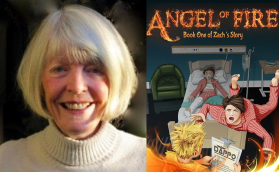Jean ‘Binta’ Breeze didn’t have much trouble finding a captive audience for her poetry performances when she arrived in London from Jamaica in 1985. Being the first woman on the dub and reggae poetry scene, which had gained momentum in Britain during the 1970s and ‘80s, was enough to spark the curiosity of black and Caribbean audiences. In particular, Breeze recalls, it was the women in these communities who sat up and took notice, having only seen men perform the artform before.
‘There was a really good poetry scene [when she arrived in London], because in the years previous there had been a lot of dub poets and reggae poets coming out of Jamaica that were all men,’ Breeze observes. ‘There was a lot of interest in the first woman in that field of writing in London, and there was a great welcome from the black community in particular, and black women, who were interested in seeing a woman [perform]. Generally, throughout Britain in the poetry scene there was a big welcome.’




